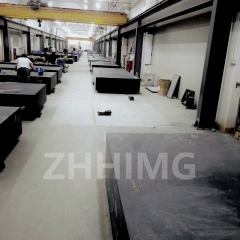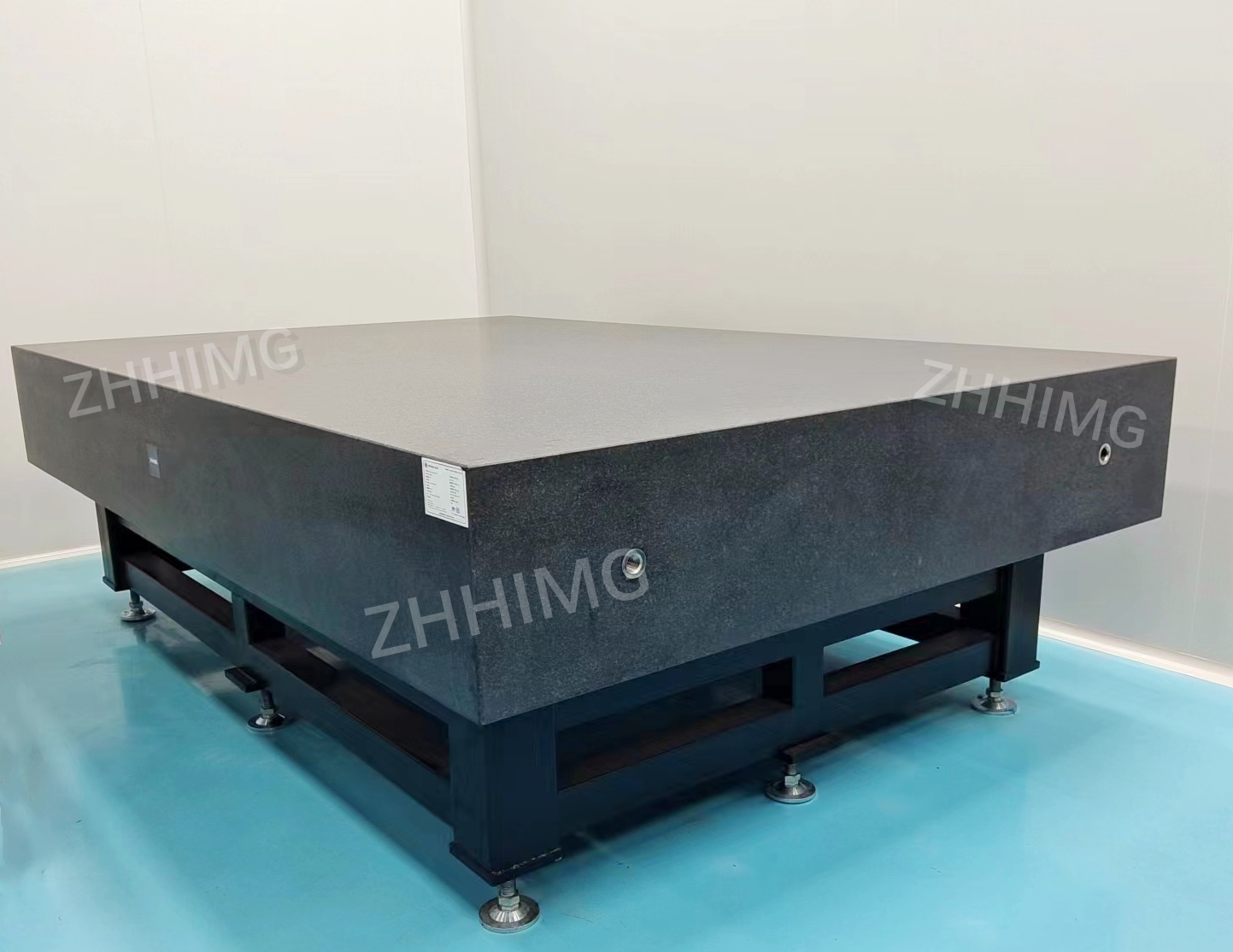In the field of electronic equipment manufacturing, the drilling accuracy of printed circuit boards (PCBS) is of vital importance, as it directly affects the installation of subsequent electronic components and the performance of circuits. During the use of traditional cast iron bases, the vibration problem often causes the PCB holes to shift, which has become a major problem restricting the improvement of drilling accuracy. The granite base, with its unique physical properties and structural advantages, provides an effective solution to this problem.

The root cause of borehole deviation caused by cast iron vibration
The natural frequency of cast iron material is relatively low. During the operation of drilling equipment, especially when the high-speed rotating drill bit comes into contact with the sheet metal, resonance is prone to occur. This resonance will cause the cast iron base to generate vibrations that cannot be ignored. Even the extremely tiny vibration amplitude will be continuously accumulated and amplified during precise drilling operations, eventually leading to the drill bit deviating from the originally set drilling position. Furthermore, the damping performance of the cast iron base is limited, making it difficult to rapidly attenuate the vibration energy, resulting in a longer vibration duration and further intensifying the degree of borehole offset.
The excellent anti-vibration characteristics of the granite base
Granite has excellent damping properties. Its internal mineral crystal structure is compact and can effectively absorb and consume vibration energy. When the drilling equipment operates and generates vibration, the granite base can significantly reduce the amplitude of the vibration in an extremely short time. Research shows that the damping ratio of granite is several times that of cast iron. This means that it can convert most of the vibration energy into heat energy and other forms of energy in an instant and dissipate them, thereby significantly reducing the impact of vibration on drilling operations, ensuring that the drill bit can stably drill along the predetermined trajectory, and effectively reducing the occurrence of offset phenomena.
Guarantee of high rigidity and stability
The granite base also has extremely high rigidity and stability. Its density is relatively high and its compressive strength is much higher than that of cast iron. During the drilling process, it can withstand the considerable pressure applied by the drill bit and various mechanical stresses generated during the operation of the equipment, and is not prone to deformation. Even under long-term continuous operation or minor external impact, the granite base can maintain the stability of its structure and provide a solid and reliable support platform for the drilling equipment. This stable support ensures that the relative positions of each component of the drilling equipment remain precise at all times, thereby guaranteeing the high precision of the drilling.
The advantage of thermal stability avoids additional vibration
In addition to its vibration resistance, the thermal stability of granite is also very outstanding. During the drilling process, the friction between the drill bit and the sheet metal generates heat, and the operation of the equipment can also cause a local temperature increase. The cast iron base is greatly affected by temperature changes. Thermal expansion and contraction can easily cause additional deformation and vibration, which interferes with the drilling accuracy. The coefficient of thermal expansion of granite is extremely low. When the temperature fluctuates, its dimensional changes can almost be ignored. This avoids the additional vibration caused by thermal deformation, creates a more stable working environment for drilling operations, and further reduces the possibility of drilling offset.
In the pursuit of high-precision PCB drilling operations, the granite base, with its excellent vibration resistance, high rigidity, high stability and outstanding thermal stability, effectively solves the drilling offset problem caused by cast iron vibration from multiple aspects. It provides more reliable support for PCB drilling equipment, helps the electronics manufacturing industry produce higher-quality printed circuit boards, and promotes the entire industry to develop in a more precise and advanced direction.
Post time: May-22-2025

